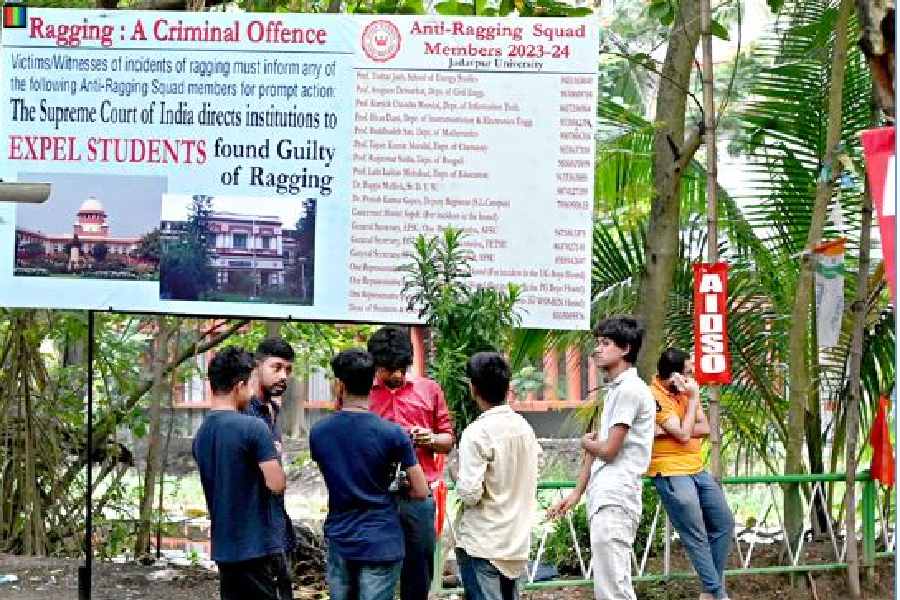The Jadavpur University Teachers’ Association (Juta) in a note circulated to teachers has said “the common people will hate teachers” if they remain mute spectators to ragging or “indirectly support” students involved in “unjust” protests to save those found guilty of ragging.
The note, issued on Saturday and signed by Partha Pratim Ray, general secretary
of the association, says: “In this situation let us launch a fight to protect the pride of
our beloved university — let us initiate one last-ditch attempt.”
The appeal was made days after a first-year student was allegedly thrown to death from a second-floor balcony of the A-2 block of JU Main Hostel by senior residents of the hostel.
The university has started an inquiry to find out whether the victim, who was a minor, had been ragged.
The appeal has triggered a buzz on the JU campus, where teachers had been accused of supporting students who launched protests to protect those who were found in investigations by the university to have ragged juniors.
After one such series of protests at JU in 2013, Souvik Bhattacharyya had to resign as vice-chancellor.
In August 2013, JU’s anti-ragging committee had suspended a final-year student for two semesters and another for one semester following a complaint lodged by a junior with the UGC’s anti-ragging helpline.
Bhattacharyya, who had joined JU from IIT Kharagpur, and some other officials had been confined for more than 52 hours by students, who demanded that the suspensions be withdrawn.
The VC quit on October 21, 2013, a couple of weeks after a meeting of the executive council, JU’s highest decision-making body, allegedly forced him to form a three-member committee to review the punishment.
A JU official said a large number of teachers did not support Bhattacharyya on the issue.
“Many had suggested that the pay disparity — between his remuneration as VC and what he was getting at the IIT — was behind the resignation. But the fact that the authority of the vice-chancellor was challenged through revocation of punishment made
him wonder why he was continuing as VC,” the official said.
“The teachers who were on the council did not support him adequately.”
When The Telegraph contacted Bhattacharyya on Sunday, he declined to comment.
Pradip Ghosh, who was JU registrar when Bhattacharyya resigned, said: “If everybody supported Bhattacharyya then, he would perhaps have continued.”
A source close to Bhattacharyya said that when he first visited the main hostel, days after taking over as VC in August 2012, students had protested.
“Teachers and officials at the university discouraged him from visiting hostels,” said the source.
Juta general secretary Ray refused to admit that teachers had backed students who resorted to unlawful protests to save those found guilty of ragging.
“We don’t have elected teachers’ representatives in the highest decision-making bodies anymore as the state government disallows it. The nominated representatives don’t take any stand on important issues,” he said.
